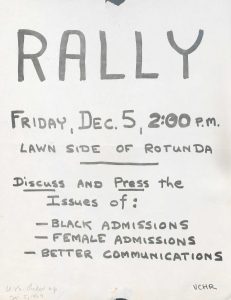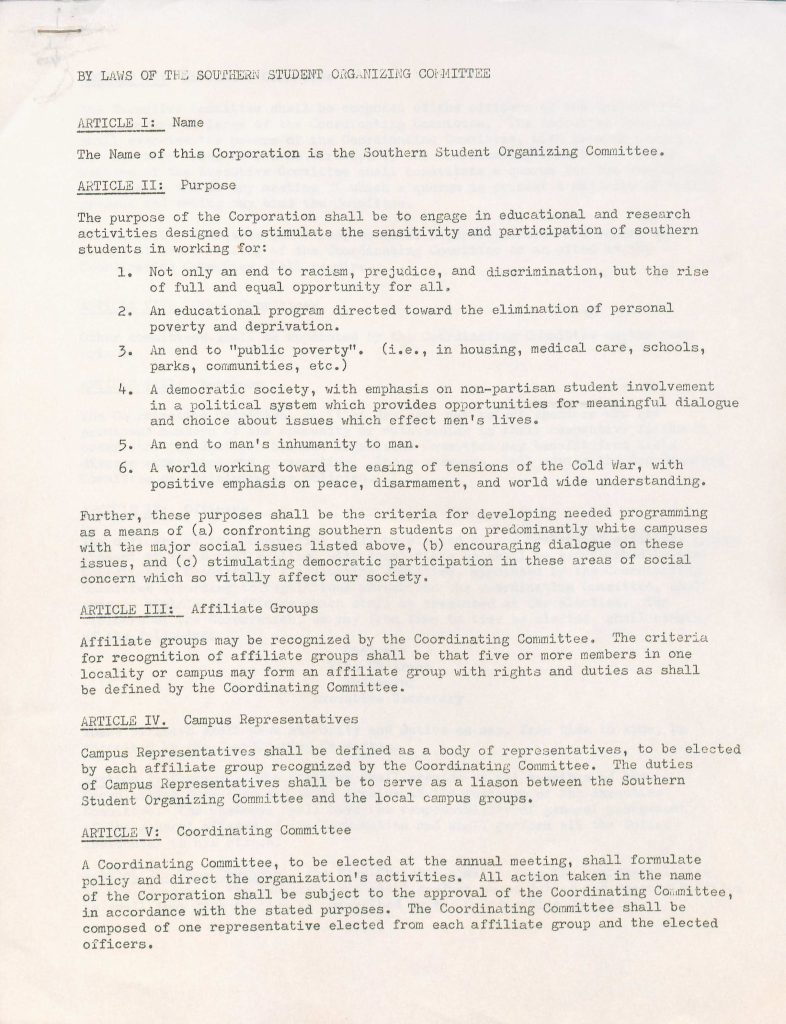This week we are pleased to welcome a guest post by Aasritha S. Natarajan, who is a third year majoring in Biology and Cognitive Science with a minor in History
Imagine being able to document all the works of 900+ CIOs and student organizations regardless of how long they have been on Grounds—documenting the lives of students across centuries, which in turn gives prospective students something to aspire to and something to look forward to being a part of when they join our prestigious community. Unfortunately, only approximately 10% of our student organizations have any archival documentation in the UVA Archives in the Albert and Shirley Small Special Collections Library. I was curious—why haven’t student organizations archived their records? As part of the UVA Bicentennial-funded Archiving Student Life for the Third Century project, my coworker Jacob Shaw and I began working on outreach to document student life to help expand our collection of records from student organizations, and assess gaps in UVA Archives’ holdings. We soon began to see patterns.
Why are there so few records from student organizations? One reason could be due to the levels of representation of CIOs and other student groups across Grounds. When I analyzed the data about the UVA Archives’ holdings, I found some interesting patterns in terms of underrepresentation among those student organizations that don’t have records in Special Collections. These groups include minority ethnicity-based CIOs (e.g., the Latinx community, the Asian community, and the African American community), gender-based groups (specifically those that concern women at UVA), and fine arts organizations (e.g., a cappella groups and dance teams), among others. While I cannot entirely say why these groups are underrepresented, I can say that they deserve far more recognition, to say the least.
One reason could be that idea of the word “archive” is misconstrued most of the time. The word “archiving” sounds ancient, obsolete, and inefficient, when it is far from it. In fact, archiving is more relevant than ever, in a world where digital media presents opportunities for one to record their work in social world and, at the same time, to erase their presence whenever one likes. Archiving doesn’t just matter for manuscripts, administrative files, and other physical paper documents; it also matters for digital content and media— that is, DVDs/CDs, social media accounts, websites, online documents, group chats, and audiovisual files. Special Collections staff can help you preserve your digital content as well as your social media content.
So why is it useful, or rather, important, to archive your organization’s records? Well, as I mentioned above, it sets a precedent for future incoming students; students will have something to look up to when they join the CIO or student group of their choice and will be able to have the history of student organizations from multiple perspectives. Furthermore, documenting the aforementioned underrepresented organizations helps represent a far more diverse student body. Archives provide context for how student organizations were run, and how the structure was modified to suit each incoming generation of students. So, without a shadow of a doubt, I highly recommend archiving your organization’s records—in the spirit of our Bicentennial, it helps us imagine what student life could be like for the third century of UVA students.
In the spirit of learning how to archive student organization records, please attend our workshop on April 24th, 5:30 – 6:30pm, where I will be elaborating upon these discrepancies. Jacob and I will be discussing the importance of archiving, and you can learn about donating and preserving your records. Furthermore, you will have the opportunity to hear from students and resident staff from the Albert and Shirley Small Collections Library about how they help preserve the unique history of UVA. Information about this workshop can be found here: https://bit.ly/2TFZK9a




